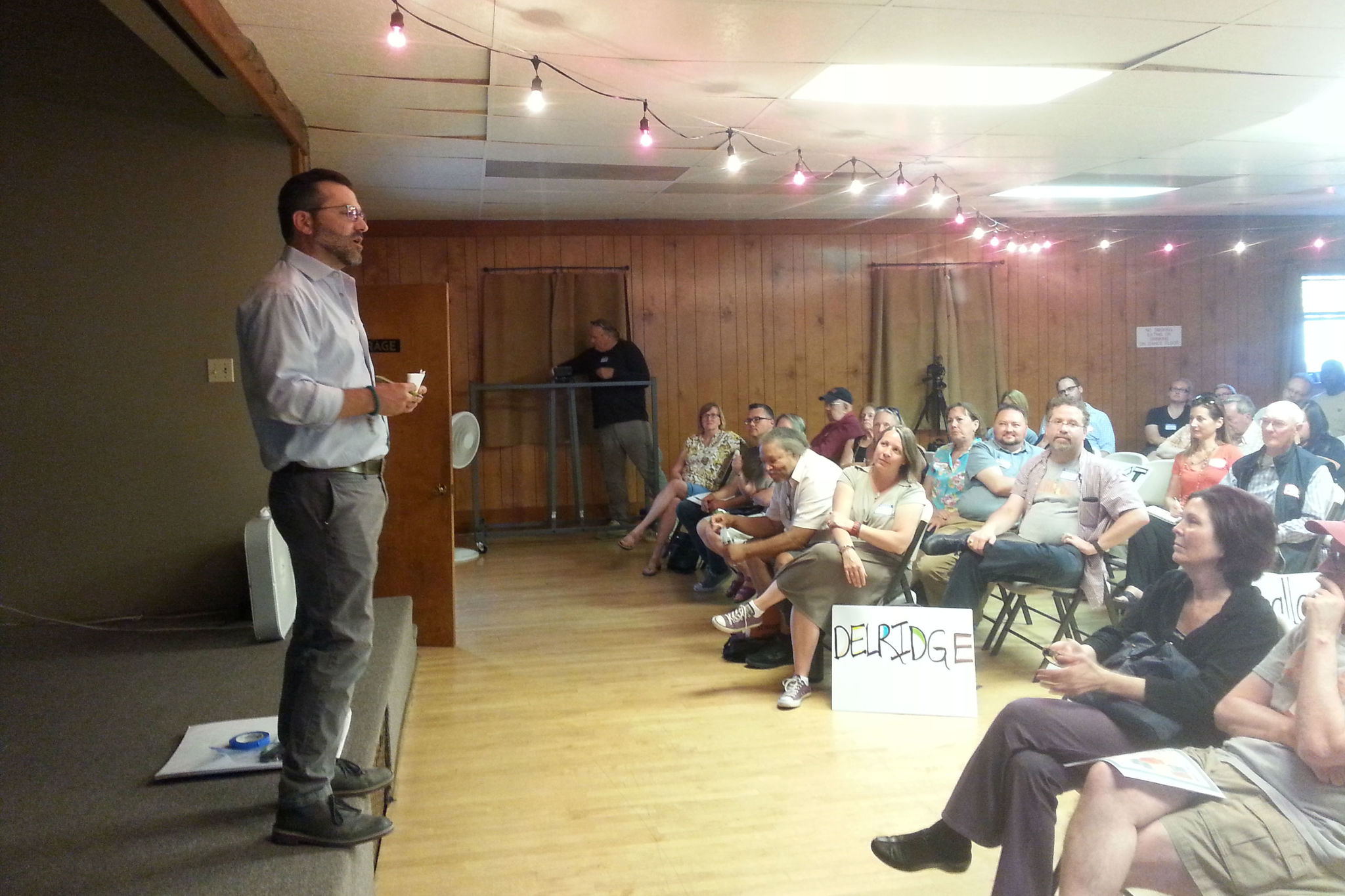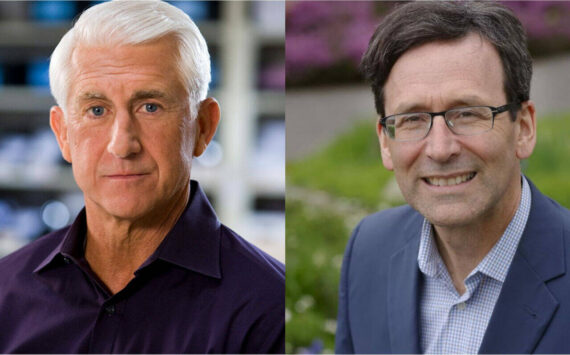Are neighbor councils dominated by old white homeowners? Maybe, said many of the council representatives at a meeting in Delridge last night, but that’s because they’re underfunded by the city.
“There seems to be a real conflict between what [the city] wants us to do and what they fund,” said Michael Taylor-Judd, co-chair of the North Delridge Neighborhood Council.
Taylor-Judd was one of just under a hundred people crowded into the Highland Park Improvement Club in Delridge last night, at a hastily arranged meeting of representatives from Seattle’s 13 Neighborhood District Councils (not to be confused with Seattle’s seven city council districts, which are totally different) to vent, rally, and strategize in response to Mayor Murray’s announcement last week that he’s ending city funding for the councils due to their lack of diversity. Council attendees, he said in a press release, tend to be “40 years of age or older, Caucasian, with the vast majority owning their homes.” In order to include other demographic groups in the city’s decisions, he’s directed the Department of Neighborhoods (DoN), which has historically worked with district councils, to replace them with an as-yet-undetailed “Seattle Community Involvement Commission.”
The current neighbor council system is divided into a three-tiered democratic hierarchy. Hyper-local Community Councils, along with other community groups, send representatives to one of the thirteen Neighborhood District Councils. Those Neighborhood District Councils in turn send representatives to the City Neighborhood Council. Last night was formally a meeting of the Delridge Neighborhoods District Council, but following Murray’s announcement chair Mat McBride quickly retooled the meeting into a sort of neighborhood activist summit, inviting neighbor council representatives from across the city.
“We should have been the first people talked to” when the mayor was considering this policy change, McBride told the room last night. Pacing on the front stage like a motivational speaker at a company retreat (“What’s your Next?” he asked the crowd repeatedly), McBride told the crowd that the issues of underrepresentation Murray points to are problems “that we’ve been talking about for years.” Applause and nods of agreement.
David Levinson of the Belltown Community Council accused Murray of quashing dissent. “The truth is the mayor would prefer things from the top down, rather than the bottom up,” he said. That’s why Murray is cutting off formal city support for the neighbor councils, he said: to politically sideline a well-organized constituency with which the mayor has often butted heads. Ronnie Angeles, a former DoN employee, said the neighbor councils are “a threat to the mayor, because [they’re] about people power.”
A common refrain at the meeting was the charge that the very lack of diversity and underrepresentation Murray points to have been caused not by neighbor councils themselves, but by underfunding and lack of support from the city. “What support are they pulling from us?” former city council candidate Amanda Kay Helmick asked rhetorically, prompting a few laughs around the room. Catherine Weatbrook, who unsuccessfully challenged city councilmember Mike O’Brien for his seat last year, called the Dept. of Neighborhoods “obstructionist” and charged Murray with “villify[ing] volunteers” from neighbor councils. “We are owed an apology, in person,” she declared.
Also present was Lisa Herbold, city council representative for West Seattle. She declined to comment, saying that she was just there to listen. However, the West Seattle Blog quoted her responding to Murray’s announcement last week, saying in part:
[W]hen you look around your holiday dinner table and realize that you have the same people at the table every year, you don’t disinvite them, you invite more people…I don’t believe that there is anything inherently undemocratic in a District Council system.
UPDATE. Dept. of Neighborhoods got back to us about neighbors’ claims that reduced funding is the cause for neighbor councils’ homogeneity. Spokesperson Lois Maag says via email that it’s true that in 2011 and ‘12, the number of city-paid Neighborhood District Coordinators were reduced from 13 to 9, but cautions that “[I] don’t know if you can draw a line to the fact that a cut in [Neighborhood District Council funding] is the reason for the councils’ lack of diversity.” She says the city also provides “enhancement funds” to the neighbor councils, though those were reduced in 2010 after only 30 percent of the funds were used the previous year.
DoN still provides a little more than $500 per year to each of the 13 Neighborhood District Councils (or at least they did until last week). Maag says that so far, only 34 percent of that money has been spent. “None of it that we can see has been used for translation/interpretation,” she says. “However, I can’t say they aren’t doing that work; they could be using a volunteer or in-kind resources or are reaching out to cultural organizations in other ways. But of what we can see, they aren’t using their enhancement funds to do so.”








